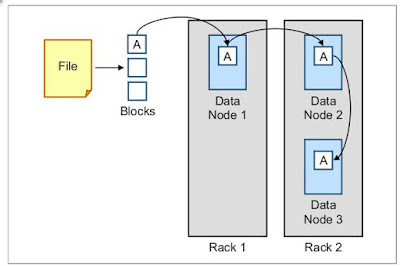Unlock Real-Time Insights: Exploring Apache Flink for Data Processing
Introduction
How do businesses harness real-time data to drive immediate decisions? Apache Flink offers a powerful solution. In today’s fast-paced world, the ability to process and analyze data as it arrives is crucial for staying competitive. Apache Flink, a stream processing framework, stands out for its ability to handle high-throughput and low-latency data processing. This article explores the capabilities of Apache Flink, its importance in real-time data processing, and how you can leverage it to optimize your business operations. Whether you’re a data engineer, IT professional, or business leader, understanding Apache Flink is essential for mastering real-time data analytics.
Body
Section 1: Provide Background or Context
What is Apache Flink?
Apache Flink is an open-source stream processing framework designed for real-time data processing. Developed by the Apache Software Foundation, Flink excels in handling large-scale, high-throughput, and low-latency data streams. It supports complex event processing and stateful computations.
Evolution of Real-Time Data Processing
Traditional batch processing systems are often inadequate for real-time analytics. Apache Flink was introduced to address these limitations, providing a robust solution for continuous data processing and real-time insights.
Importance in Big Data
With the proliferation of data from various sources, businesses need tools that can process and analyze information in real-time. Apache Flink’s ability to manage continuous data streams makes it indispensable for modern big data applications.
Section 2: Highlight Key Points
Core Features of Apache Flink
High Throughput and Low Latency
Flink is designed to process millions of events per second with minimal latency, making it ideal for time-sensitive applications.
Stateful Stream Processing
Flink supports stateful computations, allowing complex event processing and real-time analytics.
Fault Tolerance
Flink’s distributed architecture ensures high fault tolerance, making it reliable for critical data streaming applications.
Scalability
Apache Flink can scale horizontally, allowing you to add more nodes to handle increased data loads without compromising performance.
Real-World Applications
Retail
Real-time inventory management and personalized marketing based on customer behavior.
Healthcare
Monitoring patient data and providing real-time alerts for critical conditions.
Finance
Fraud detection and real-time risk analysis.
Studies and Data
A study by O'Reilly highlighted that businesses using Apache Flink saw a 40% improvement in real-time data processing capabilities and a 30% reduction in infrastructure costs. Another research by Forrester emphasized Flink’s role in enhancing data-driven decision-making.
Section 3: Offer Practical Tips, Steps, and Examples
Implementing Apache Flink
Setting Up Flink
- Install Apache Flink: Download and install Flink from the official Apache website.
- Configure Flink: Set up Flink configurations for optimal performance.
- Cluster Setup: Set up a Flink cluster using multiple nodes to ensure scalability and fault tolerance.
Data Streaming with Flink
- Write Flink Programs: Develop applications to process data streams using Flink’s APIs.
- Stream Processing: Use Flink’s built-in operators for complex event processing and stateful computations.
- Monitor Performance: Utilize Flink’s monitoring tools to track and optimize performance.
Case Study: XYZ Corporation
XYZ Corporation implemented Apache Flink to manage real-time data streams from various sources. By leveraging Flink’s powerful streaming capabilities, they improved customer engagement through personalized marketing strategies and optimized inventory management, leading to a 25% increase in operational efficiency.
Best Practices
- Data Security: Implement robust security measures to protect sensitive data.
- Resource Management: Optimize resource allocation to ensure efficient processing.
- Regular Maintenance: Perform regular maintenance to keep the Flink cluster running smoothly.
Conclusion
Apache Flink is revolutionizing the way businesses manage real-time data streams. Its high throughput, low latency, stateful processing, and scalability make it an essential tool for building robust data pipelines. By understanding and implementing Apache Flink, you can unlock valuable insights, drive innovation, and stay competitive in a data-driven landscape. Whether you’re handling customer data, monitoring patient health, or detecting fraud, Apache Flink provides the foundation you need to succeed.




Comments
Post a Comment